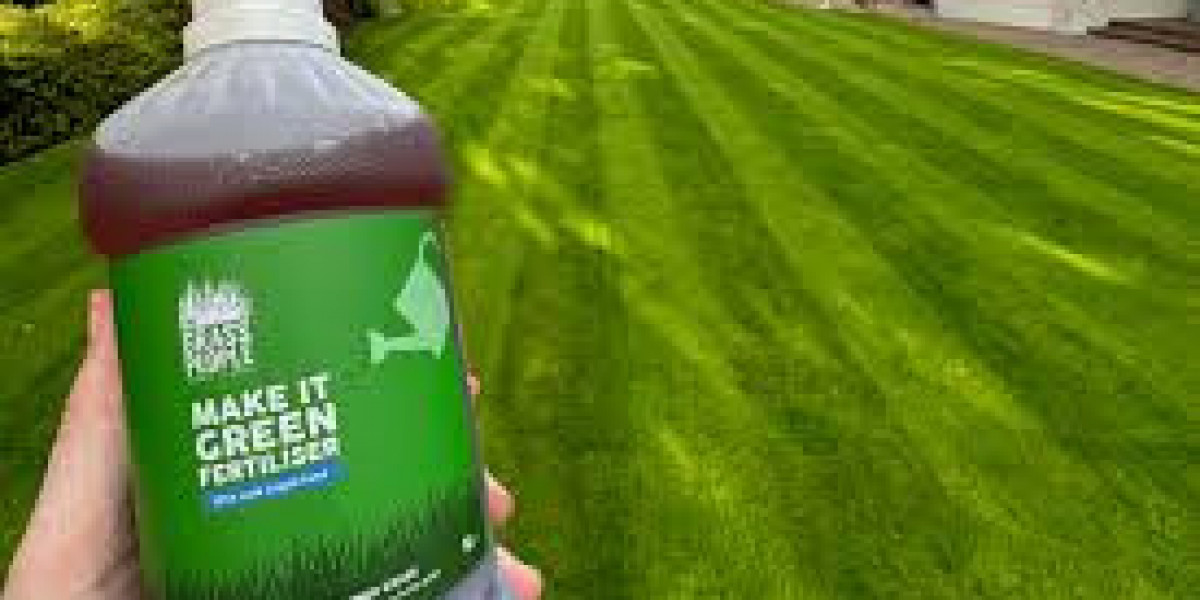hoosing the best lawn fertilizer depends on your specific lawn needs, soil conditions, and climate. Here are some top-rated lawn fertilizers that are well-regarded for their effectiveness and suitability for various lawn types:
Top Lawn Fertilizers
1. Scotts Turf Builder Lawn Food
- Nutrient Content: 32-0-4 (Nitrogen-Phosphorus-Potassium)
- Features: Provides all the essential nutrients to help grass grow thick and green. Helps lawns absorb water and nutrients more effectively.
- Application: Granular form, applied with a spreader. Suitable for all grass types.
2. Milorganite Organic Nitrogen Fertilizer
- Nutrient Content: 6-4-0 (Nitrogen-Phosphorus-Potassium)
- Features: Organic-based fertilizer that is safe for children and pets. Provides slow-release nitrogen and improves soil health.
- Application: Granular form, applied with a spreader. Suitable for all grass types.
3. Simple Lawn Solutions Advanced 16-4-8 Balanced NPK - Lawn Food Quality Liquid Fertilizer
- Nutrient Content: 16-4-8 (Nitrogen-Phosphorus-Potassium)
- Features: Provides balanced nutrients for overall lawn health. Contains seaweed and fish for additional micronutrients.
- Application: Liquid concentrate, applied with a hose-end sprayer. Suitable for all grass types.
4. Safer Brand 9333 Ringer Fertilizer
- Nutrient Content: 10-0-6 (Nitrogen-Phosphorus-Potassium)
- Features: Organic formula that promotes healthy soil and strong root development. Safe for pets and children.
- Application: Granular form, applied with a spreader. Suitable for all grass types.
5. Espoma EOLB30 Organic Lawn Booster
- Nutrient Content: 8-0-0 (Nitrogen-Phosphorus-Potassium)
- Features: Organic fertilizer that enhances soil structure and microbial activity. Promotes long-lasting greening and growth.
- Application: Granular form, applied with a spreader. Suitable for all grass types.
Factors to Consider When Choosing a Lawn Fertilizer
- Lawn Type: Different grass types have varying nutrient needs. Ensure the fertilizer is suitable for your specific lawn variety.
- Soil Condition: Conduct a soil test to understand nutrient deficiencies and choose a fertilizer that addresses those needs.
- Climate: Consider the local climate and the growing season. Some fertilizers are better suited for specific times of the year.
- Organic vs. Synthetic: Organic fertilizers improve soil health over time but may act slower than synthetic ones. Synthetic fertilizers provide quick results but may need more frequent application.
- Application Method: Choose a fertilizer that fits your preferred application method (granular, liquid, slow-release).
Tips for Fertilizing Your Lawn
- Timing: Fertilize during the active growing season. For cool-season grasses, early spring and autumn are best. For warm-season grasses, late spring through summer is ideal.
- Even Coverage: Use a spreader for granular fertilizers to ensure even distribution. For liquid fertilizers, use a hose-end sprayer.
- Watering: Water your lawn after applying fertilizer to help nutrients penetrate the soil and reduce the risk of fertilizer burn.
- Follow Instructions: Always follow the manufacturer’s instructions regarding the amount and frequency of application to avoid over-fertilization and potential lawn damage.
Conclusion
Selecting the best lawn fertilizer involves understanding your lawn’s specific needs, soil conditions, and local climate. The products listed above are highly regarded for their effectiveness and ease of use. Regular application, combined with proper lawn care practices, will ensure your lawn remains healthy, lush, and green throughout the year. Conducting a soil test and following product instructions will further enhance the effectiveness of your fertilization efforts.








